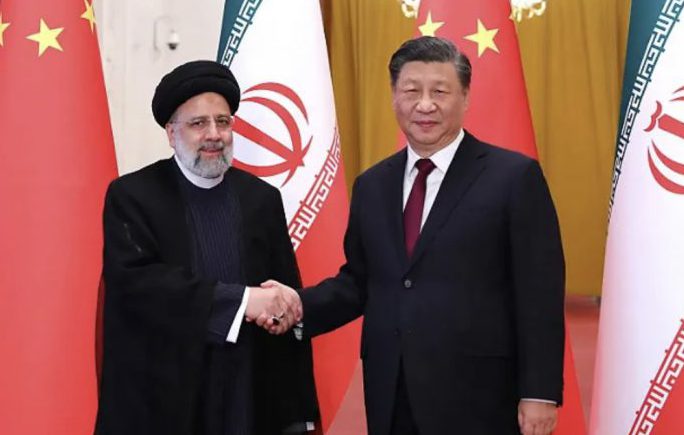Post-Israel Conflict, Iran isn’t just rebuilding its Air Defenses with Chinese Missiles — it’s preparing. And the world should take note.
Iran has reportedly begun receiving Chinese surface-to-air missile (SAM) systems, signaling an urgent and deeply troubling escalation in Tehran’s efforts to rebuild its air defense network — severely crippled during its recent 12-day confrontation with Israel, Middle East Eye reported Monday.
According to intelligence sources cited in the report, shipments of Chinese SAM batteries began arriving shortly after a de facto truce between Iran and Israel was established on June 24. An Arab official with knowledge of the intelligence confirmed that these deliveries are already underway, while another official — speaking under condition of anonymity due to the sensitive nature of the intel — revealed that U.S.-aligned Arab states have been closely monitoring Tehran’s rearmament and have formally alerted the White House to the development.
Though the precise number of missile batteries delivered remains undisclosed, what’s known is equally alarming: Iran is paying for the advanced Chinese weaponry with crude oil, bypassing U.S. sanctions through covert energy transactions. Beijing, already the recipient of nearly 90% of Iran’s oil exports — often rerouted through countries like Malaysia — appears to be intensifying its strategic alignment with the Islamic Republic despite international censure.
“The Iranians engage in creative ways of trading,” the second Arab official explained, alluding to Tehran’s growing reliance on oil-for-arms arrangements that have emboldened it to circumvent sanctions and quietly upgrade its military capabilities.
This rapidly unfolding situation underscores a dangerous trend: While the world’s attention is fragmented, Iran is quietly hardening its air defenses with the support of a rising global power, China. Western officials have long feared this alignment — a fear now substantiated by tangible arms deliveries.
Iran’s preexisting missile defense inventory includes Russian S-300 batteries, dated Chinese systems, and several domestically developed units like the Khordad-15 and Bavar-373. However, these systems have proven largely inadequate against modern stealth aircraft, including the U.S.-made F-35s currently deployed by Israel. The introduction of more sophisticated Chinese SAMs may begin to close that gap — an outcome that could severely complicate any future Israeli or U.S. air operations.
Analysts warn that this deepening China-Iran axis marks a new and volatile chapter in Middle East geopolitics. As Tehran fortifies its airspace with foreign-sourced missile shields, it signals not only its military recovery but also a defiant posture toward deterrence, escalation, and confrontation.





